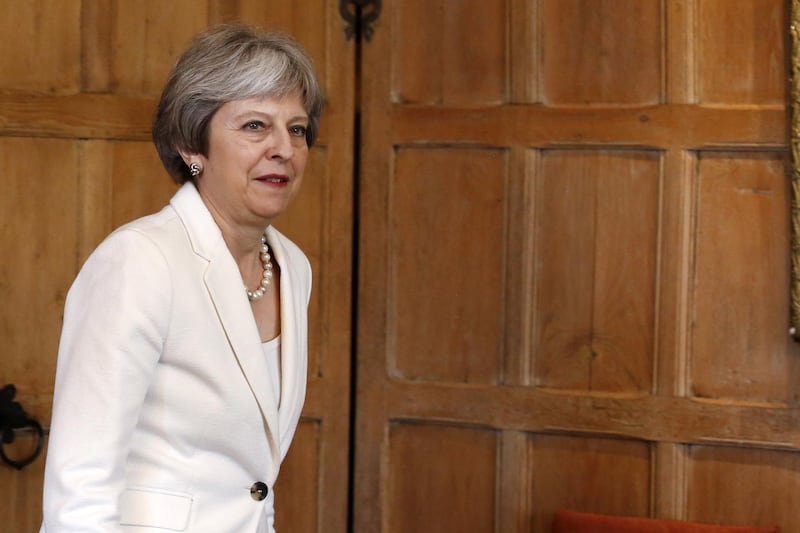Theresa May is battling to avert a rebellion inside her own party amid fears of eurosceptic Tories that she will break her promise to take the UK out of the European Union’s trade regime.
A senior government official said Mrs May’s inner circle thinks she could be forced to accept staying in the EU’s customs union because Parliament will reject her plan to withdraw from it when the issue comes to a vote in the House of Commons. Such a move could trigger a challenge to her leadership from Brexit campaigners in the Conservative party.
Mrs May’s team insists she is committed to breaking away from European customs laws, with officials saying on Sunday that the key policy hasn’t changed.
“The route we’re going for is leaving the customs union but ensuring that we don’t put in place unnecessary barriers to our trade with the European Union,” justice secretary David Gauke said on the BBC’s Andrew Marr Show on Sunday. “We can make that case to Parliament, we can win that case.”
The question of customs union membership goes to the heart of the kind of Brexit the UK will get and is likely to come to a head in a Commons vote as early as next month. The issue will be aired in a non-binding parliamentary debate later this week.
_______________
Read more:
[ PM suffers embarrassing Brexit bill defeat in House of Lords ]
[ With Brexit looming, Britain is looking for new Commonwealth allies ]
_______________
Mrs May has said she wants to leave the trade regime, which sets tariffs for all EU member states, so that the UK can strike better trade agreements with countries such as the US and Australia. Such deals can’t be reached while the country is covered by EU bilateral accords.
But business leaders argue that leaving the customs union will severely damage cross-border trade, potentially imposing new tariffs and requiring burdensome checks on the origin of goods in transit. European officials also see staying in the customs arrangement as a potential solution to the otherwise intractable issue of how to avoid a hard border between the UK and Ireland after Brexit.
Senior Brexit-supporting ministers are likely to make their case for breaking free of the EU rules directly to the prime minister when she holds a key meeting of her inner cabinet on Wednesday, one official said.
The main topic will be discussion of the U.K.’s aims for international trade after Brexit, according to the official, and will almost certainly involve consideration of the customs deal the country will seek to reach with the bloc.
Last week foreign secretary Boris Johnson warned that failing to leave the union would be worse than no Brexit at all. His eurosceptic cabinet colleague, Liam Fox, the international trade secretary, is also a passionate advocate for leaving EU common tariffs and commercial policies.
“Trying to keep us in a customs union would be deeply divisive in the party, the Commons and the country at large,” Jacob Rees-Mogg, chairman of the European Research Group of Leave-supporting Conservatives, told The Sunday Telegraph.
The Sunday Times reported that the PM’s office believed Mr Fox and Mr Johnson would quit but other eurosceptics would accept staying in the EU customs arrangement. The newspaper quoted one aide saying Mrs May would not be upset if parliament forced her to stay in the customs framework by voting against her plans to leave it, though one person familiar with the prime minister’s thinking disputed the account.
Another senior British official said the cabinet hasn’t yet discussed what kind of customs plan it wants but needed to reach a decision before a key EU summit in June. Time is running out for negotiations to reach a deal on the terms of Brexit and a framework for the future trade agreement by October.






